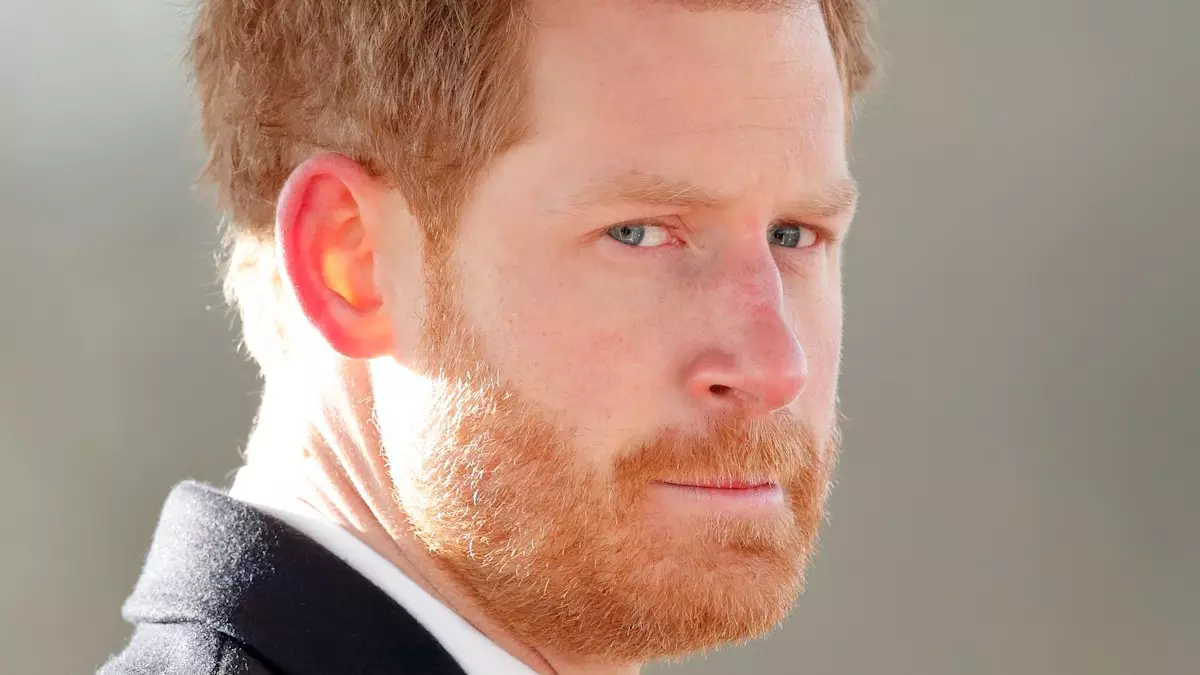The Duke of Sussex, Prince Harry, is poised to make a significant return to the United Kingdom next month to take part in a trial that is not just a legal formality but a landmark case imbued with personal stakes and broader implications. Appearing at the High Court, Prince Harry, along with former Labour deputy leader Lord Tom Watson, is set to confront the News Group Newspapers (NGN), the parent company of The Sun. This trial centers around accusations of unlawful information gathering and blatant invasions of privacy—serious allegations that have sparked widespread media interest and public curiosity.
The essence of these accusations involves claims of intrusive and unethical tactics employed by journalists and hired private investigators as they sought to gather sensitive personal information about the Duke. Such allegations extend far beyond minor ethics concerns; they tap into the very heart of privacy rights and personal security in an era defined by rampant media scrutiny and varying ethical standards.
Prince Harry’s accusations are deeply rooted in an overarching context of extensive unlawful practices, including but not limited to phone hacking. Such breaches are symptomatic of a culture of sensationalism and disregard for individual privacy rights that has been pervasive within certain segments of the British media. As this high-profile trial commences—a process expected to last around seven weeks—the Duke will be subjected to rigorous cross-examination by barristers representing The Sun, further underscoring the intense scrutiny he faces.
The Duke’s comments at a recent summit in New York highlighted a concerning pattern: “They’ve settled because they’ve had to settle.” This sentiment encapsulates his motivation to pursue legal accountability, an effort underscored by the fact that he remains one of the few who can potentially bring these issues to the fore and compel change.
As Prince Harry prepares for his trial, his wife Meghan Markle is anticipated to remain in Montecito, California, attending to their young children, Prince Archie and Princess Lilibet. This anticipated absence is indicative of a larger pattern of Meghan’s reluctance to return to the UK, compounded by security concerns following changes to Harry’s personal protection during his visits to the country. Her decision to stay behind underscores the complicated dynamics they face, balancing family responsibilities with legal battles and public scrutiny.
Beyond familial obligations, their relocation to California in 2020 symbolized a departure from royal duties and a step toward greater personal autonomy. Meghan’s last visit to the UK with Harry came in September 2022, but the complexities surrounding security and media relations might delay any future trips. Notably, Meghan’s absence during critical events, such as the final days of Queen Elizabeth II, signals the weight of these issues on their relationship with the royal family and their public life.
The intricacies of Harry’s legal battles extend to his ongoing conflict with the Home Office regarding the protection he receives while in the UK. In February 2024, a High Court judge ruled against Harry’s challenge, thereby reinforcing the Home Office’s discretion in determining security protocols. Harry’s contention is rooted in a fundamental desire for safety; he expressed profound sadness over having to step away from his royal duties and his homeland, a place he wishes his children could embrace fully. His heartfelt sentiments reflect a deep desire to reconcile his ties to Britain while ensuring the safety of his family.
Amidst this legal turmoil, the couple seems trapped in a liminal space: straddling their commitments to each other as family with the obligations and repercussions of royal life. As they navigate the complexities of their new roles away from the monarchy, the question of their place within it lingers, alongside the persistent issues of media intrusion and personal security.
The upcoming trial not only represents a personal battle for Prince Harry but also raises larger questions about accountability in journalism and the ethical responsibilities of media outlets. The outcome could set precedents regarding privacy rights for public figures, especially in an age where information is often commodified without regard for the individual. As Prince Harry confronts a powerful media entity, the implications extend beyond personal grievances; they reach into the societal realm, affecting how privacy is defined and defended in an increasingly invasive landscape.
Overall, Prince Harry’s return to the UK for this trial isn’t merely about addressing his grievances but rather embodies a quest for justice that resonates beyond his personal narrative. His legal confrontations ultimately speak to a broader desire for accountability and ethical reform within the media—a pursuit that could ripple through both UK society and the global landscape.

